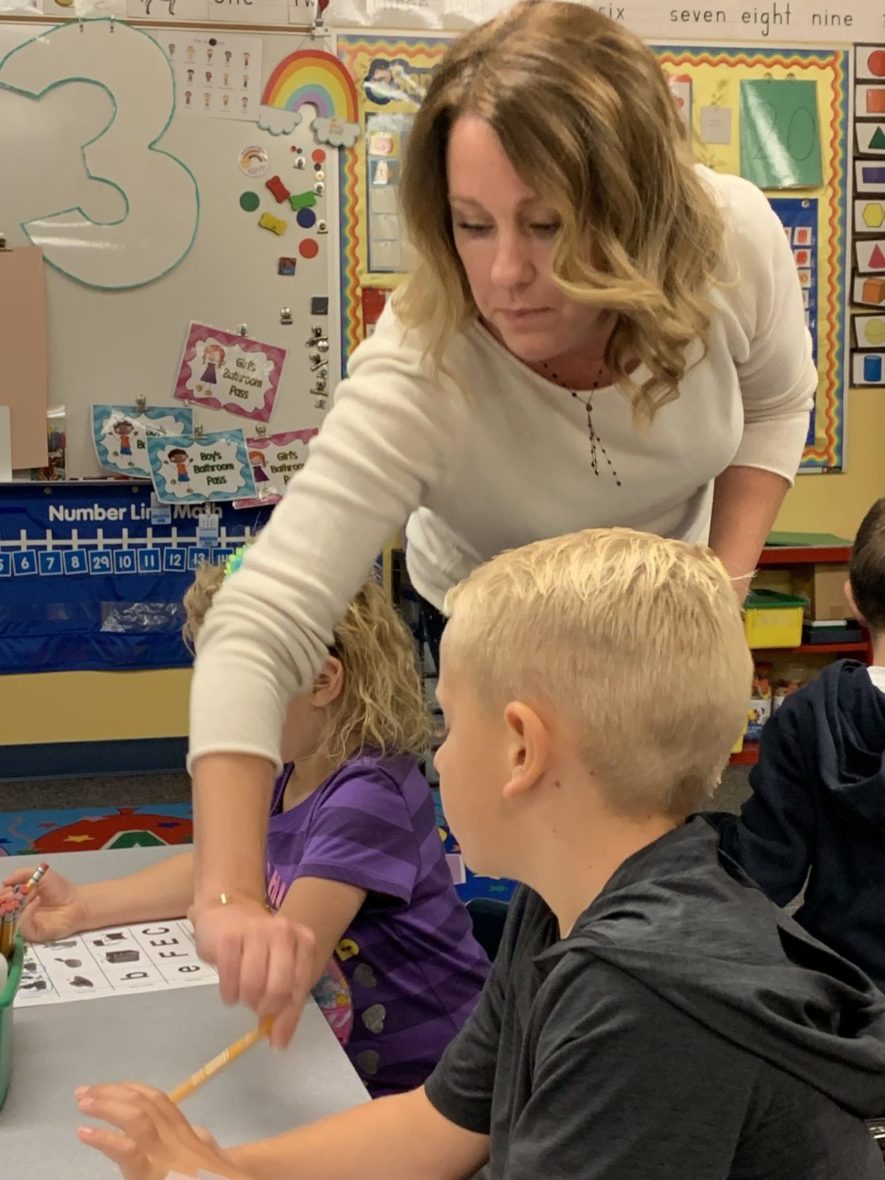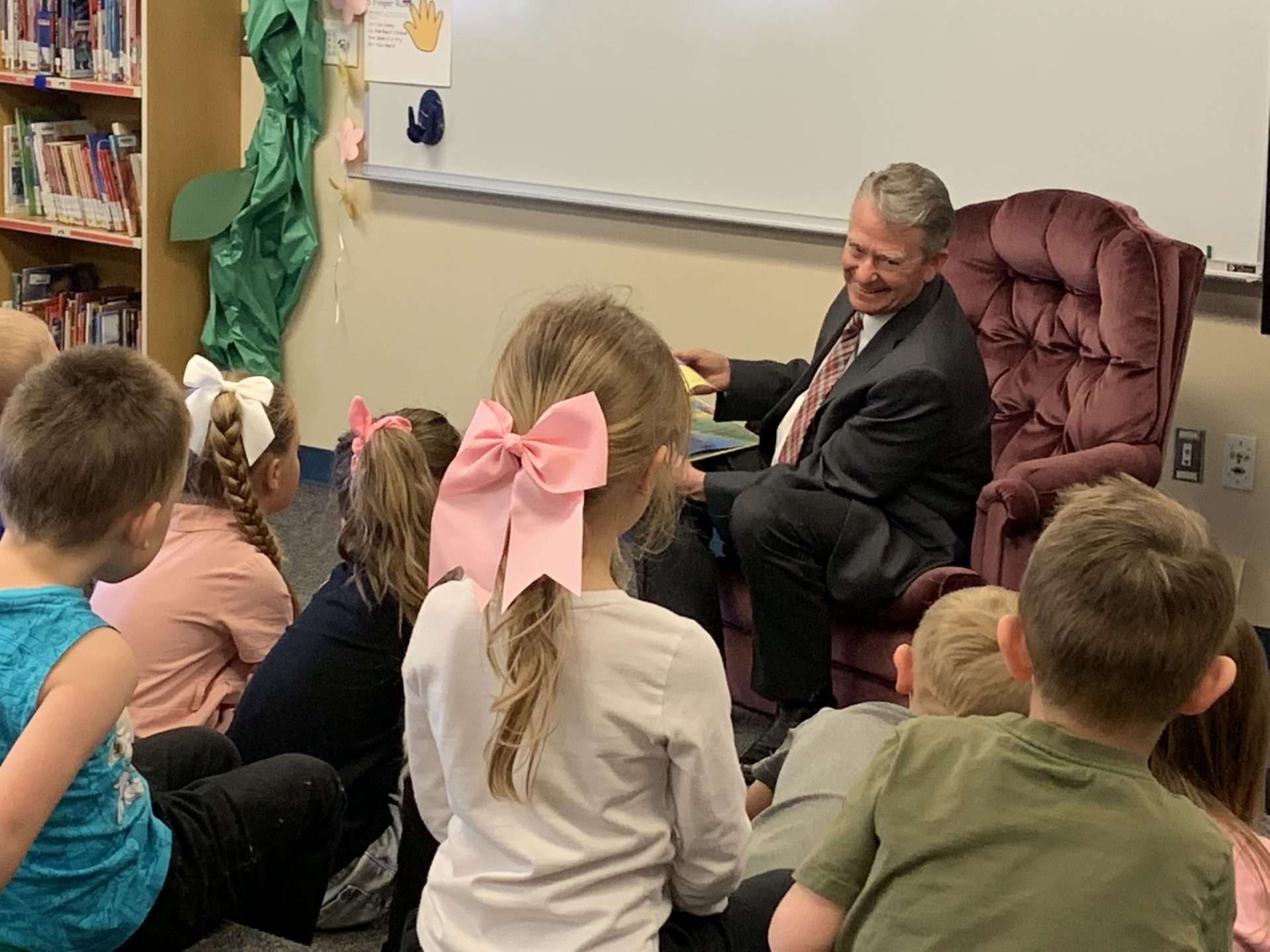
West Ada and Twin Falls school leaders didn’t waste any time.
Days after the Legislature pumped an additional $46.6 million into early literacy, the two districts announced plans to launch all-day kindergarten this fall.
And the Boise School District actually beat both districts out of the gate. Boise announced its all-day kindergarten plans in January — betting, correctly, that lawmakers would heed Gov. Brad Little’s call for more literacy money.
West Ada, Twin Falls and Boise are doing exactly what Little and his legislative allies envisioned. They are choosing to put some of their new literacy money into tuition-free all-day kindergarten, supplementing the funding they already receive for a half day of kinder.

But moving quickly is not the same as moving easily. And there’s nothing simple about the move to all-day kindergarten.
First, the bottom-line questions
Schools will certainly get more money for literacy. The funding increase moves the literacy line item from $26 million to more than $72 million.
But no one knows how much of the $72 million will go to a particular district or charter. Those payments will be based, in part, on spring Idaho Reading Indicator scores. Kindergarten through third-grade students will take the screener later this month.
And as legislators wrestled with the literacy proposal this session, they fundamentally changed the way the state will divvy up the money.
For several years, the state targeted the money to at-risk readers — based on the number of students who scored below grade level on the IRI.
But starting July 1, half of the $72 million will go out based on enrollment, and the other half will go out based on students who hit grade level on the IRI or show improvement. (There is some weighting in the formula to account for economically disadvantaged students.)
Some lawmakers argued that they no longer wanted to reward schools for failure, preferring to instead incentivize success. But the new formula has some education leaders nervous.
In an Idaho Education News podcast airing Friday, Idaho Association of School Administrators executive director Andy Grover said he wants to see how the math shakes out in the next year, to make sure the state isn’t penalizing districts and students “who need the most help.”
Striking a spending balance
Idaho School Boards Association deputy director Quinn Perry said she is excited to see schools step up to offer all-day kindergarten. But she doesn’t expect every district to follow suit, and she said schools need to be cautious.
“You would be a fool if you dumped all that (new) money into kindergarten, because 50% of the funding is now dependent on your K-3 readers,” Perry said in this week’s podcast.
Indeed, the literacy money has gone out to schools with few restrictions. Some schools have already been using the money for all-day kindergarten; Boise has put about a tenth of its $1.6 million in literacy funding for all-day kindergarten tuition waivers at Jefferson and Taft elementary schools.
But schools have the green light to spend literacy dollars on anything they believe will help K-3 readers — and that mixed approach is unlikely to change.
Boise has put most of its $1.6 million into hiring reading specialists and reading tutors, although the district plans to shift its approach to a “learning coach” model, designed to help K-3 teachers work more effectively with at-risk readers, within the traditional classroom.
Similarly, Twin Falls has already been putting some of its money into free full-day kindergarten in five of its nine elementary schools, focusing on students who show up behind in their early reading skills. The district has also put literacy money into a host of other programs, such as hiring paraprofessionals that allow the schools to work with at-risk readers in small groups. “That work will all continue,” elementary programs director Jennie Peterson said.
Logistical challenges
None of the three large districts are launching their all-day kindergarten programs from scratch. About 40% of Boise’s 1,405 kindergartners are already in full-time classes, as are close to a third of West Ada’s 2,467 kindergartners.
But the two largest districts will face some logistical hurdles as they launch into all-day kindergarten.
The chronically crowded West Ada district should have adequate space in their grade schools for the expanded kinder classes, but the Galileo STEM Academy will need to use a portable classroom, district spokeswoman Niki Scheppers said.
Then there’s the matter of hiring. West Ada will need an additional 33 teachers for all-day kindergarten. Twin Falls will need nine to 11 new teachers. Boise is looking to add 37 full-time jobs — and possibly more support positions, in special education, physical education and music, spokesman Dan Hollar said.
Then there’s transportation. West Ada won’t know how all-day kindergarten will affect their transportation programs until student registration wraps up this month, Scheppers said. Boise is banking on a savings of $175,000 as it eliminates some midday bus routes, Hollar said.
But that dovetails into another logistical issue: Boise isn’t yet sure if it will eliminate half-day kindergarten, or continue to offer it as an option for parents who prefer it. “We will be gauging the interest level, if there is any,” Hollar said Wednesday.
‘We are not going to flashcard our way out of this’
Beth Oppenheimer — executive director of the Idaho Association for the Education of Young Children, and a Boise school trustee — is well aware of the unanswered questions about all-day kindergarten.
But she is excited to see Boise and other districts jumping on board, because she is excited about the potential. Teachers will have the luxury of time, to work both with their at-risk students and kids who are at grade level. As parents start their young kids off with a full day in school, she expects parents to become more engaged in the education process — not less. And young kids will have more time in a safe, structured setting, picking up the social skills that might ultimately be more important than their ABCs and 1, 2, 3s.
Oppenheimer doesn’t really begrudge the fact that Idaho public policy has basically intertwined all-day kindergarten with early literacy. People want something measurable — and reading scores are more tangible than social skills.
But even after schools work through the logistics and launch all-day kindergarten, she said, it won’t solve everything. Less than 41% of kindergartners showed up last fall ready to learn to read, according to the IRI scores — and until Idaho changes the way it approaches early childhood development, those grim numbers aren’t likely to change.
“We are not going to flashcard our way out of this,” she said.
Kevin Richert writes a weekly analysis on education policy and education politics. Look for his stories each Thursday.
Listen Friday: Now that the 2022 legislative session is history, how will schools spend their literacy money — and roll out all the other new laws passed this winter? Kevin Richert will explore these issues in his next weekly podcast.
